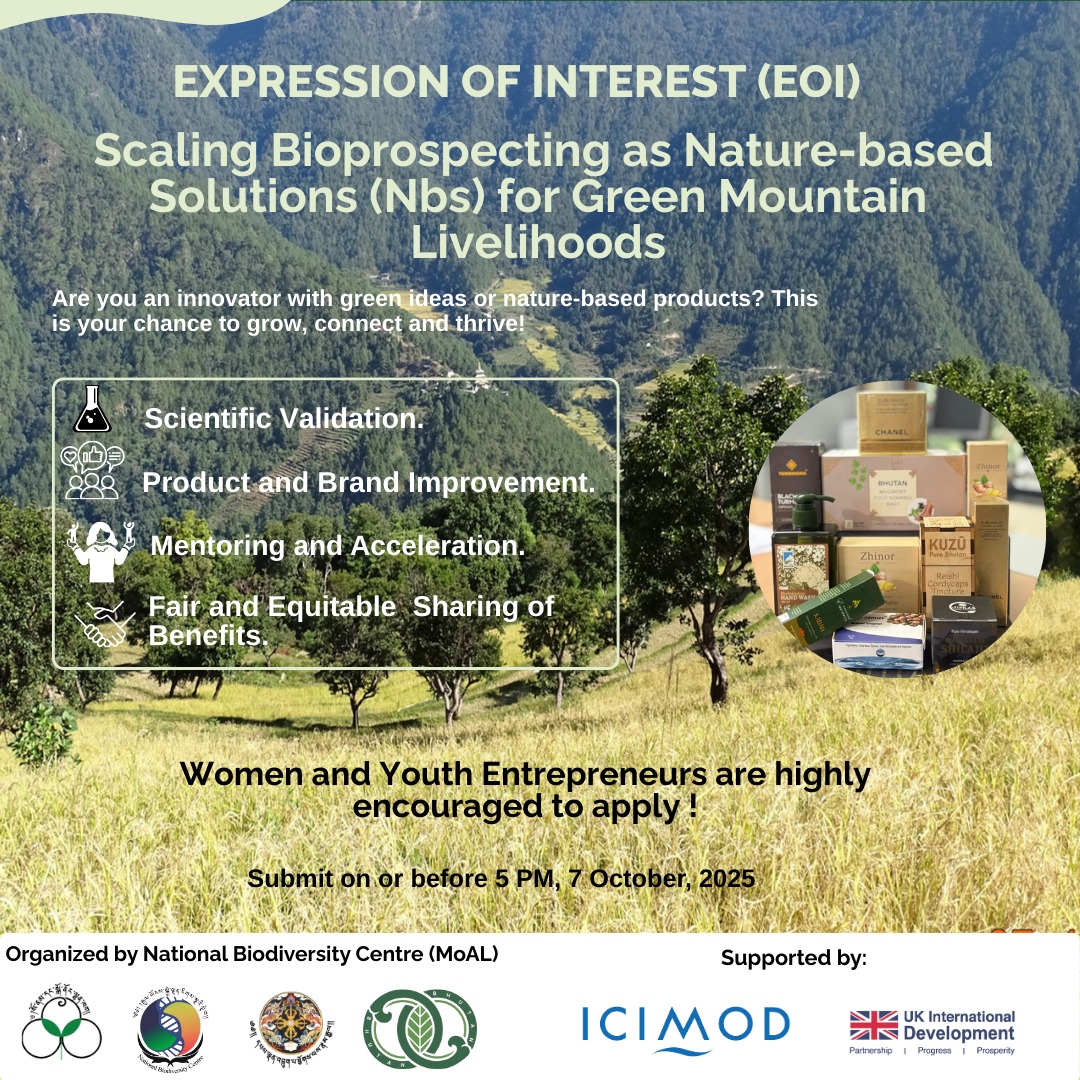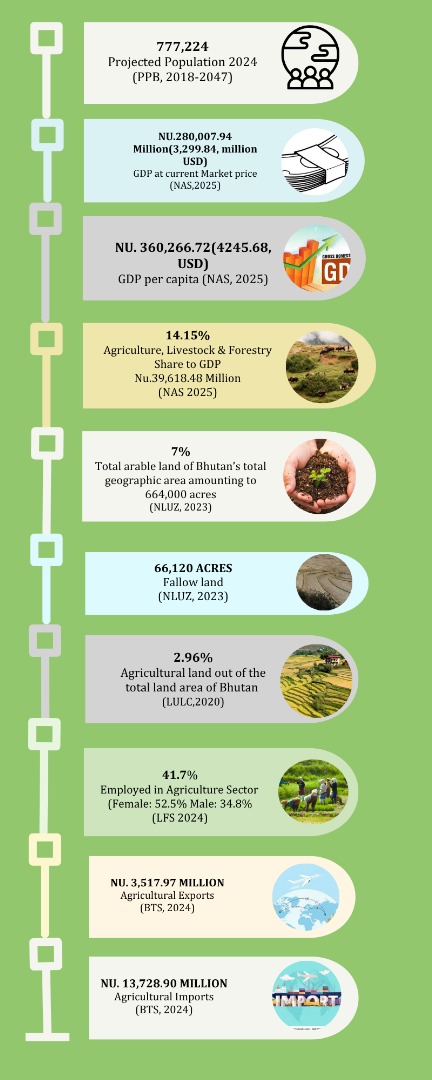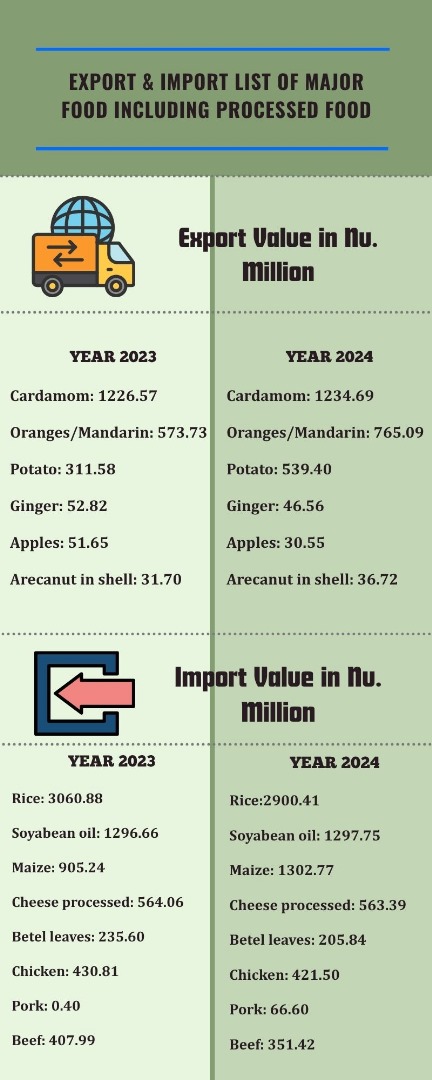Bhutan’s 5th National Biodiversity Strategies and Action Plan (NBSAP), launched today on 16 September 2025, coinciding with World Ozone Day, outlines 20 ambitious targets to conserve biodiversity, strengthen ecosystems, and link nature protection with livelihoods, cultural heritage and economic resilience.
This updated plan reaffirms Bhutan’s global leadership in environmental stewardship and its commitment to the Convention on Biological Diversity. Building on the achievements and lessons from the 4th NBSAP, the latest strategy provides a dynamic and effective roadmap to 2030, placing harmony between people and nature at the heart of Bhutan’s development agenda.
It takes a bold, integrated, end-to-end approach to biodiversity conservation, from ecosystem restoration to protecting species and genetic diversity, from sustainable use of natural resources to reducing pollution, and from adapting to climate change and strengthening institutions.
What sets the 5th NBSAP apart?
The 5th NBSAP stands out not only for its ambitions but also for its alignment with national and global priorities:
- Climate-nature alignment: For the first time, the NBSAP is being aligned with Nationally Determined Contributions (NDC 3.0), currently under development— creating a coherent national pathway for biodiversity and climate action.
- A high-level strategic pathway: The strategy promotes ecosystem integrity as the foundation for long-term economic well-being, true to Bhutan’s development philosophy of Gross National Happiness.
- Knowledge-driven and people-centered: The strategy is rooted in science, traditional knowledge, and community participation, all standing as equal pillars of success.
- Aligned with global priorities: All 20 targets outlined in the strategy align with the Kunming–Montreal Global Biodiversity Framework as well as the Sustainable Development Goals.
- The Country’s 13th Five Year Plan: The strategy and actions of the NBSAP are aligned to the country’s 13th Five Year Plan (FYP) for coordinated implementation, efficient and effective utilizations of the resources and for monitoring and evaluation.
A whole-of-society implementation
The NBSAP is not just a government plan. It is a national framework for collective action. Its success will depend on coordinated efforts by the government agencies, local governments and communities, civil society, the private sector, academia and development partners. Implementation will focus on:
- Mainstreaming biodiversity across sectors, such as agriculture, tourism, urban development, energy, and finance, with clear linkages to the 13th Five-Year Plan and Bhutan’s economic transformation roadmap.
- Showcasing Bhutan’s biodiversity–climate nexus contributions, where protecting nature strengthens resilience, supports green jobs, and underpins sustainable growth.
The National Biodiversity Centre under the Ministry of Agriculture and Livestock and the Department of Environment and Climate Change under the Ministry of Energy and Natural Resources jointly led the preparation of the 5th NBSAP with support from the United Nations Development Programme (UNDP) and Global Environment Facility (GEF). The strategy was shaped through wide-ranging consultations with stakeholders from all levels
The NBSAP, as a high-level strategic document, “provides a clear framework to attain economic prosperity without compromising our rich biodiversity and health of our ecosystems”, said Lyonpo Younten Phuntsho, Minister, Ministry of Agriculture and Livestock, and urges all stakeholders – government agencies, local governments, communities, civil society organizations, the private sector, academia, and development partners – to embrace this document as a national guiding framework for biodiversity stewardship.
“The 5th NBSAP is both a reflection of Bhutan’s past achievements and a forward-looking framework to safeguard nature while enabling prosperity,” said Mohammad Younus, Resident Representative of UNDP. “Let us treat it as a living strategy – adaptive, inclusive and focused on measurable results. Together we can ensure that Bhutan’s ecological wealth continues to underpin economic prosperity and that living in harmony with nature remains the guiding principle of Bhutan’s development agenda.”
“The NBSAP 2025 recognizes that the triple planetary crises – climate change, biodiversity loss, and pollution – are interconnected rather than separate, with actions in one area often exacerbating challenges in the others. This document, therefore, seeks to address these critical issues in an integrated manner,” said Lyonpo Gem Tshering, Minister, Ministry of Energy and Natural Resources.
![]()




